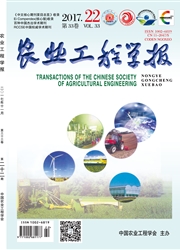

 中文摘要:
中文摘要:
掺合料和水胶比是影响混凝土性能发展的重要因素。该研究结合纯硅酸盐水泥和掺合料的水化反应机理,推导出复合水泥基材料的水化产物、理论最大掺量和孔隙率的计算公式,探究粉煤灰、钢渣和锂渣掺量对水化产物、孔隙率以及砂浆力学性能的影响,并推算出3种掺合料在混凝土中的理论最大掺量。结果表明:同掺量的粉煤灰、钢渣和锂渣掺入后,复合胶凝材料水化产物CH、CSH和总孔隙率较纯水泥砂浆要小;相比4种砂浆中水化产物而言,按水化产物CSH含量排序为水泥砂浆〉水泥-锂渣砂浆〉水泥-钢渣砂浆〉水泥-粉煤灰砂浆;按总孔隙率大小排序为水泥-钢渣砂浆〉水泥-粉煤灰砂浆〉水泥-锂渣砂浆〉水泥砂浆;按理论最大掺量值大小排序为粉煤灰〉锂渣〉钢渣。经砂浆力学性能测试发现:当掺量为20%时,水泥-锂渣砂浆后期的抗压强度优于纯水泥砂浆,若掺量再增加时,水泥-粉煤灰砂浆、水泥-锂渣砂浆和水泥-钢渣砂浆的力学性能均低于纯水泥砂浆。综合上述研究发现锂渣的活性较钢渣和粉煤灰要好,该研究可为掺合料在砂浆和混凝土中的使用提供参考。
 英文摘要:
英文摘要:
Admixture and water-cement ratio are important factors affecting the development of properties of cement mortar or concrete. In order to study the influence of admixtures and water-cement ratio on the hydration products and the mechanical properties of cement-based materials, the study combined hydration reaction mechanism of pure cement and silicate admixture, derived the formulae of hydration products, theoretical maximum mixing amount and total porosity of composite cement-based materials, and investigated the effects of mixing amount of cement mortar with fly ash, steel slag and lithium slag on total porosity, mechanical properties and hydration products. This paper designed 3 gradients of water-cement ratio (0.50, 0.42 and 0.34), 3 kinds of admixtures (lithium slag, fly ash and steel slag) and 2 contents (20% and 60%); the ratio of cementitious material to sand was 1:2.5, and then, molding specimen accorded with the mix of mortar in the triple mold and the mechanical properties of mortar were tested when specimen was cured to 1, 3, 7, 28 and 90 d. The results showed that, after the same content of fly ash, steel slag and lithium slag incorporation, the contents of hydration products of composite cementitious materials, i.e. calcium hydroxide (CH) and calcium silicate hydrate (CSH), and the total porosity were smaller than those of pure cement; when the water-cement ratio decreased from 0.50 to 0.34, the total porosity of cement mortar decreased from 16.0% to 9.3%, and the contents of CH and CSH increased for the compound cement-based materials with mixing amount of 5%, but the increments were not big; the porosity of fly ash, steel slag and lithium slag cement-based composite materials reduced from 16.6%, 17.2% and 16.0% to 9.9%, 10.9% and 9.3%, respectively. When the admixture amount increased to 10%, the variation of porosity and hydration products of the 3 kinds of mortar was different. The content of hydration products (CH and CSH) of composite cementitious materials was still s
 同期刊论文项目
同期刊论文项目
 同项目期刊论文
同项目期刊论文
 期刊信息
期刊信息
